

Paul Bowles
Born: December 30, 1910
Died: November 18, 1999
in Queens, New York, USA
Died: November 18, 1999
in Queens, New York, USA
Paul Frederic Bowles (December 30, 1910 – November 18, 1999) was an American expatriate composer, author, and translator. He became associated with the Moroccan city of Tangier, where he settled in 1947 and lived for 52 years to the end of his life.
Following a cultured middle-class upbringing in New York City, during which he displayed a talent for music and writing, Bowles pursued his education at the University of Virginia before making several trips to Paris in the 1930s. He studied music with Aaron Copland, and in New York wrote music for theatrical productions, as well as other compositions. He achieved critical and popular success with his first novel The Sheltering Sky (1949), set in French North Africa, which he had visited in 1931.
In 1947, Bowles settled in Tangier, at that time in the Tangier International Zone, and his wife Jane Bowles followed in 1948. Except for winters spent in Ceylon during the early 1950s, Tangier was Bowles's home for the remainder of his life. He came to symbolize American immigrants in the city.
Bowles died in 1999 at the age of 88. His ashes are buried near family graves in Lakemont Cemetery, in upstate New York.
Paul Bowles was born in Jamaica, Queens, New York City, as the only child of Rena (née Winnewisser) and Claude Dietz Bowles, a dentist. His childhood was materially comfortable, but his father was a cold and domineering parent, opposed to any form of play or entertainment, and feared by both his son and wife. According to family legend, Claude had tried to kill his newborn son by leaving him exposed on a window-ledge during a snowstorm. The story may not be true, but Bowles believed it was and that it encapsulated his relationship with his father. Warmth in his childhood was provided by his mother, who read Nathaniel Hawthorne and Edgar Allan Poe to him – it was to the latter that he later attributed his own desire to write stories, such as "The Delicate Prey", "A Distant Episode", and "Pages from Cold Point".
Bowles could read at age 3 and was writing stories by age 4. Soon, he wrote surrealistic poetry and music. In 1922, at age 11, he bought his first book of poetry, Arthur Waley's A Hundred and Seventy Chinese Poems. At age 17, he had a poem, "Spire Song", accepted for publication in the literary journal transition. This Paris-based publication served as a forum for leading proponents of modernism – Djuna Barnes, James Joyce, Paul Éluard, Gertrude Stein and others. Bowles's interest in music also dated from his childhood, when his father bought a phonograph and classical records. (Bowles was interested in jazz, but such records were forbidden by his father.) His family bought a piano, and the young Bowles studied musical theory, singing, and piano. When he was 15, he attended a performance of Stravinsky's The Firebird at Carnegie Hall, which made a profound impression: "Hearing The Firebird made me determined to continue improvising on the piano when my father was out of the house, and to notate my own music with an increasing degree of knowing that I had happened upon a new and exciting mode of expression." ...
Source: Article "Paul Bowles" from Wikipedia in English, licensed under CC-BY-SA 3.0.
Following a cultured middle-class upbringing in New York City, during which he displayed a talent for music and writing, Bowles pursued his education at the University of Virginia before making several trips to Paris in the 1930s. He studied music with Aaron Copland, and in New York wrote music for theatrical productions, as well as other compositions. He achieved critical and popular success with his first novel The Sheltering Sky (1949), set in French North Africa, which he had visited in 1931.
In 1947, Bowles settled in Tangier, at that time in the Tangier International Zone, and his wife Jane Bowles followed in 1948. Except for winters spent in Ceylon during the early 1950s, Tangier was Bowles's home for the remainder of his life. He came to symbolize American immigrants in the city.
Bowles died in 1999 at the age of 88. His ashes are buried near family graves in Lakemont Cemetery, in upstate New York.
Paul Bowles was born in Jamaica, Queens, New York City, as the only child of Rena (née Winnewisser) and Claude Dietz Bowles, a dentist. His childhood was materially comfortable, but his father was a cold and domineering parent, opposed to any form of play or entertainment, and feared by both his son and wife. According to family legend, Claude had tried to kill his newborn son by leaving him exposed on a window-ledge during a snowstorm. The story may not be true, but Bowles believed it was and that it encapsulated his relationship with his father. Warmth in his childhood was provided by his mother, who read Nathaniel Hawthorne and Edgar Allan Poe to him – it was to the latter that he later attributed his own desire to write stories, such as "The Delicate Prey", "A Distant Episode", and "Pages from Cold Point".
Bowles could read at age 3 and was writing stories by age 4. Soon, he wrote surrealistic poetry and music. In 1922, at age 11, he bought his first book of poetry, Arthur Waley's A Hundred and Seventy Chinese Poems. At age 17, he had a poem, "Spire Song", accepted for publication in the literary journal transition. This Paris-based publication served as a forum for leading proponents of modernism – Djuna Barnes, James Joyce, Paul Éluard, Gertrude Stein and others. Bowles's interest in music also dated from his childhood, when his father bought a phonograph and classical records. (Bowles was interested in jazz, but such records were forbidden by his father.) His family bought a piano, and the young Bowles studied musical theory, singing, and piano. When he was 15, he attended a performance of Stravinsky's The Firebird at Carnegie Hall, which made a profound impression: "Hearing The Firebird made me determined to continue improvising on the piano when my father was out of the house, and to notate my own music with an increasing degree of knowing that I had happened upon a new and exciting mode of expression." ...
Source: Article "Paul Bowles" from Wikipedia in English, licensed under CC-BY-SA 3.0.
Movies for Paul Bowles...

Title: Paul Bowles: The Cage Door Is Always Open
Character: Self
Released: April 4, 2013
Type: Movie
The American composer and author Paul Bowles was a man with a great deal of charisma and influence. When he moved to Tangier, Morocco, in 1949, half the world followed him to the enigmatic city. His marriage with author Jane Bowles was a loving relationship of opposites, even though both were homosexual. Based on exclusive interviews with Bowles shortly before his death interwoven with anecdotes recounted by his friends and co-workers, the film portrays a daring and visionary life as well as a relationship shaped by an interdependency that encompassed much more than sexuality.

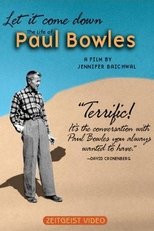
Title: Let It Come Down: The Life of Paul Bowles
Character: Himself
Released: April 1, 1999
Type: Movie
One of the most enigmatic artists of the 20th century, writer, composer and wanderer Paul Bowles (1910-1999) is profiled by a filmmaker who has been obsessed with his genius since age nineteen. Set against the dramatic landscape of North Africa, the mystery of Bowles (famed author of The Sheltering Sky) begins to unravel in Jennifer Baichwal's poetic and moving Let It Come Down: The Life of Paul Bowles. Rare, candid interviews with the reclusive Bowles--at home in Tangier, as well as in New York during an extraordinary final reunion with Allen Ginsberg and William Burroughs--are intercut with conflicting views of his supporters and detractors. At the time in his mid-eighties, Bowles speaks with unprecedented candor about his work, his controversial private life and his relationships with Gertrude Stein, Tennessee Williams, Truman Capote, the Beats, and his wife and fellow author Jane Bowles.


Title: My Sweet Little Ass
Released: November 6, 1998
Type: Movie
The film's principal character is Jean Neuenschwander, who left his home in French-speaking Switzerland in 1956 for Canada, where he was soon appointed manager of a large luxury hotel in Vancouver. In 1971, he bought a house in Tangiers where he settled down a few years later, at the age of 51, for a cosy and opulent retirement. “My Sweet Little Ass” is the account of his personal life, which Jean Neuenschwander clearly takes delight in recounting. He is a likeable hedonist who manages his affairs and his pleasures with considerable skill. From this somewhat comfortable existence, Simon Bischoff subtly extracts a group portrait of the homosexual subculture of Tangiers, which for some has the power of myth, particulary when frequented by characters such as Paul Bowles.

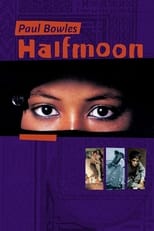
Title: Paul Bowles: Half Moon
Released: September 14, 1995
Type: Movie
Three short films based on short stories by expatriate American novelist Paul Bowles capture the sense of loss and alienation so common in his works. "Merkala Beach" follows the dissolution of a friendship after a pretty face enters the picture; "Call at Corazon" traces a newlywed couple's challenges while cruising up the Amazon River; and "Allal" chronicles the extraordinary transformation of an Indian boy who befriends a cobra.

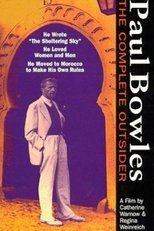
Title: Paul Bowles: The Complete Outsider
Character: Self
Released: January 1, 1994
Type: Movie
This documentary chronicles the life of expatriate writer Paul Bowles through archival footage, photos and interviews with the author, who talks about his writing, his friendships with artists such as Tennessee Williams and Aaron Copland and more. Shot in Tangier, Morocco (Bowles's longtime home), this revealing portrait sketches out Bowles's rebellious life story, including his love relationships with men and women, his drug use and his music. - Paul Bowles, Edouard Roditi, Allen Ginsberg

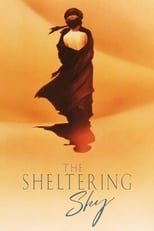
Title: The Sheltering Sky
Character: Narrator (voice)
Released: October 25, 1990
Type: Movie
An American couple drift toward emptiness in postwar North Africa.

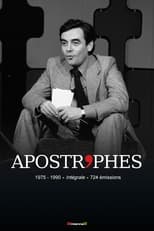
Title: Apostrophes
Character: Self
Released: January 10, 1975
Type: TV
Apostrophes was a live, weekly, literary, prime-time, talk show on French television created and hosted by Bernard Pivot. It ran for fifteen years (724 episodes) from January 10, 1975, to June 22, 1990, and was one of the most watched shows on French television (around 6 million regular viewers). It was broadcast on Friday nights on the channel France 2 (which was called "Antenne 2" from 1975 to 1992). The hourlong show was devoted to books, authors and literature. The format varied between one-on-one interviews with a single author and open discussions between four or five authors.

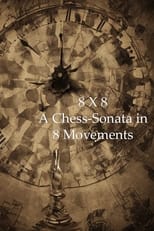
Title: 8 X 8: A Chess-Sonata in 8 Movements
Released: March 15, 1957
Type: Movie
8 x 8: A Chess-Sonata in 8 Movements is an American experimental film directed by Hans Richter, Marcel Duchamp, and Jean Cocteau. Described by Richter as "part Freud, part Lewis Carroll" and filmed partially on the lawn of Duchamp's summer house in Southbury, Connecticut.


Title: 145 W. 21
Released: January 1, 1936
Type: Movie
A romantic pair leaves their flat for a desultory burlesque show and two workmen take advantage of the empty house to pilfer a wallet.


Title: Paul Bowles in Morocco
Character: Himself
Released: December 31, 1969
Type: Movie
Documentary covering author Paul Bowles' time living in Morocco.
